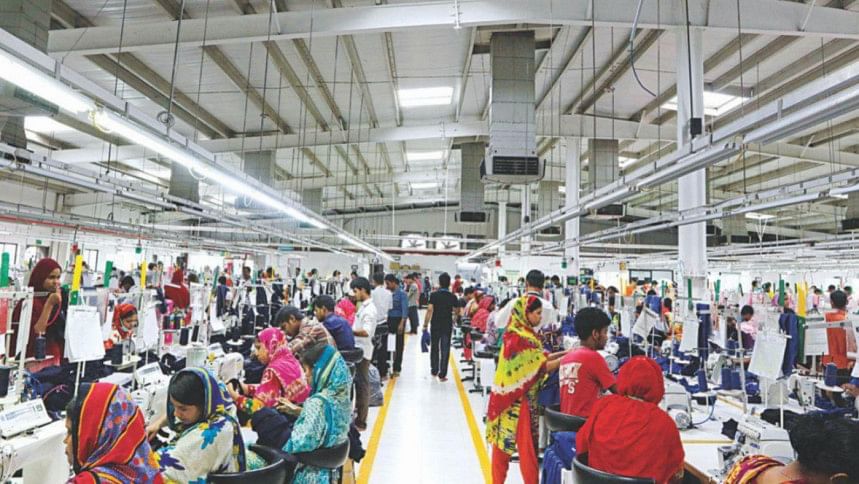Prices of three products from Bangladesh drop

Prices per unit of three garment items sourced from Bangladesh by buyers in the European Union (EU) and US declined year-on-year over the last July-September period, according to data from government agencies Eurostat and Otexa.
The EU buyers of cotton T-shirts paid less by 7.37 percent in July, 11.60 percent in August and 10.76 percent in September, said Eurostat, the statistical office of the EU.
In case of men's boy's cotton trousers, it fell by 1.59 percent, 7.80 percent and 14.71 percent whereas for cotton sweaters by 7.15 percent, 13.21 percent and 14.71 percent respectively.
Similarly, the US buyers of cotton T-shirts paid 7.25 percent less in July, 16.74 percent in August and 25.38 percent in September, said the Office of Textiles and Apparel (Otexa).
For men's boy's cotton trousers, the declines were by 1.55 percent, 0.94 percent and 5.47 percent whereas for cotton sweaters by 10.85 percent, 5.79 percent and 3.98 percent respectively.
The declines resulted from local suppliers booking work orders at rates lower than production costs in some cases, said Faruque Hassan, president of the Bangladesh Garment Manufacturers and Exporters Association (BGMEA).
It was mainly aimed at keeping factories running to minimise losses and ensure that workers get their wages and bank loan instalments are paid, he said.
"As I said, we don't also see much analyses, criticism, reports, and measures when it comes to prices and responsible purchasing practices," said Hassan.
"…(it) does not reflect any empathy for the workers (this is only the data for major items for 3 months, the price stagnation persists even if we compare 10 years' data)," he said.
Hassan's comment came in a clarification and impact statement over the recently declared minimum wage structure for garment workers.
There are mainly two reasons for the decline, said Mohammad Abdur Razzaque, chairman of private think tank Research and Policy Integration for Development.
One is a fall in demand in the countries that imported the goods and the other is for currency devaluations in exporting countries like Bangladesh and Pakistan, he said.
The local garment suppliers were able to ship the goods at lower rates because of the currency devaluations, he said.

 For all latest news, follow The Daily Star's Google News channel.
For all latest news, follow The Daily Star's Google News channel. 









Comments